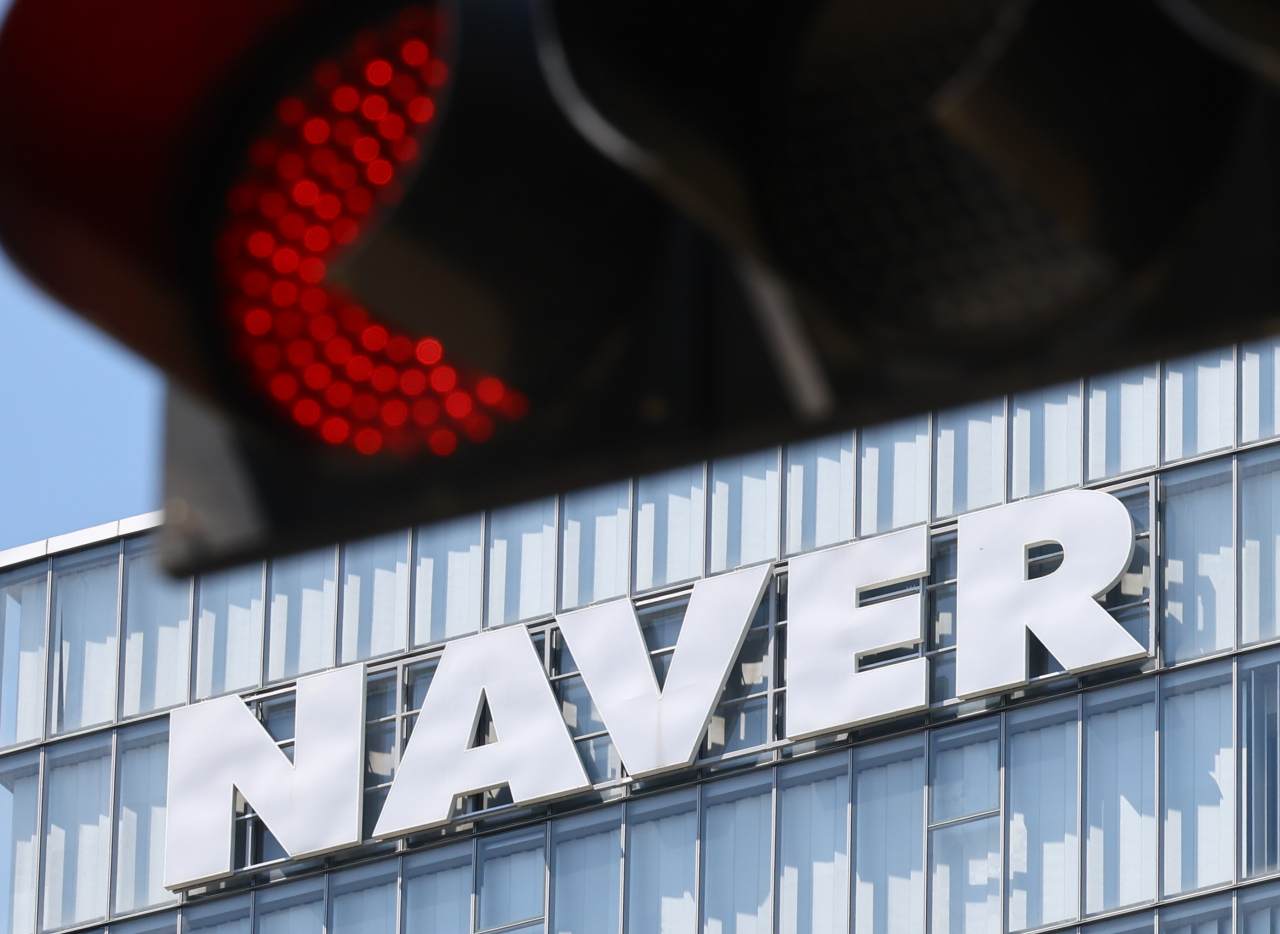 |
Naver headquarters in Seongnam, Gyeonggi Province (Newsis) |
Regardless of the ongoing diplomatic brouhaha, many industry watchers expect Naver to divest its stake in the 50:50 joint venture with SoftBank that controls the Line messenger app and Yahoo Japan.
The issue is how much cash it could secure from the stake sale and its business impact in the future.
Naver and SoftBank own 50 percent each in A Holdings, which controls almost 65 percent shares in LY Corp., the merged entity of Line and Yahoo Japan in 2019. The market cap of LY Corp. is estimated at about 2.93 trillion Japanese yen ($18 billion), which means Naver’s stake would be worth about $6 billion.
Even before the current controversy, industry insiders widely expected Naver to progressively shed its ownership in Line to enhance business ties with SoftBank, a crucial partner for its global expansion.
But after a cybersecurity breach last year, the company is reportedly being pushed to do so, making it more difficult for Naver to make the transition on its own terms. Suddenly the Korean tech giant is forced to confront a difficult choice between securing cash and losing the foothold in other Asian markets that Line gives it.
“It is highly likely that Naver will step down to the second largest shareholder and maintain its ties with LY Corp.,” NH Investment & Securities analyst Ahn Jae-min said. “Selling the entire stake won’t be easy because of its links to various global businesses in Taiwan and Thailand, as well as local businesses in Japan such as Line Manga and Naver Z.”
He also predicted that it would be a huge financial burden for SoftBank to acquire Naver’s entire stake considering its own financial struggles. When combining the premium for management rights, the value of Naver’s stake could rise to some $8 billion.
Douglas Kim, an analyst at Smartkarma, a Singapore-based investment research firm, said in a report that “although Naver could sell part of its stake in A Holdings, it may try to retain a minority stake of about 20 to 30 percent.
Currently, Naver’s market capitalization stands at about $20 billion. With the potential stake sale, it could secure cash to pour into its burgeoning artificial intelligence business. But industry watchers say it seems unavoidable for it to lose its foothold in Southeast Asia.
Since its launch in 2011, there have been more than 200 million Line users around the world. While almost 70 percent of the Japanese population, about 86 million people, use the app, it also enjoys immense popularity in Taiwan, Thailand and Indonesia.
Line, a rare success story for Naver in overseas markets, has also been expanding its business into various fields such as fintech and e-commerce.
“Line has high potential to excel in the AI era. That’s why SoftBank is looking to increase its stake,” said Jeon Seong-min, a business administration professor at Gachon University.
Lim Hee-seok, an analyst at Mirae Asset Securities, said it seems inevitable for Naver to revise its strategy for global expansion.
“If the stake sale becomes a reality, its expansion into Japan and Southeast Asia centering on Line is expected to lose its momentum,” he said, lowering his target prices for Naver for 2024 and 2025. “If it sheds the whole stake, that could drive down its net profit by 15 to 20 percent next year.”
In the meantime, Naver’s labor union on Monday announced its opposition to the potential stake sale, claiming the job security of some 2,500 Line workers will be in jeopardy under SoftBank’s ownership.
“The stake sale means giving up not just the A Holdings stake but also the passion, efforts, technology and experience of employees who have worked hard to nurture Line as a global service,” the union said in a statement.
Line Plus CEO Lee Eun-jung was set to hold a meeting with employees later Tuesday. But a company official declined to further elaborate.
The Seoul-based Line Plus, mainly handling Southeast Asian businesses, is a subsidiary of Z Intermediate, formerly Line Corp., which is now wholly owned by LY Corp. According to regulatory filings, Line Plus reported 877.9 billion won ($641.6 million) in sales in the 2023 fiscal year, of which 46.9 percent came from Japan.







![[Herald Interview] How Gopizza got big in India](http://res.heraldm.com/phpwas/restmb_idxmake.php?idx=644&simg=/content/image/2024/11/20/20241120050057_0.jpg)